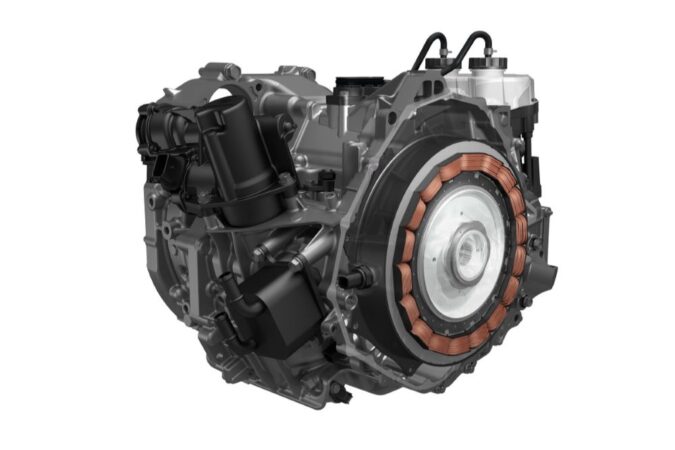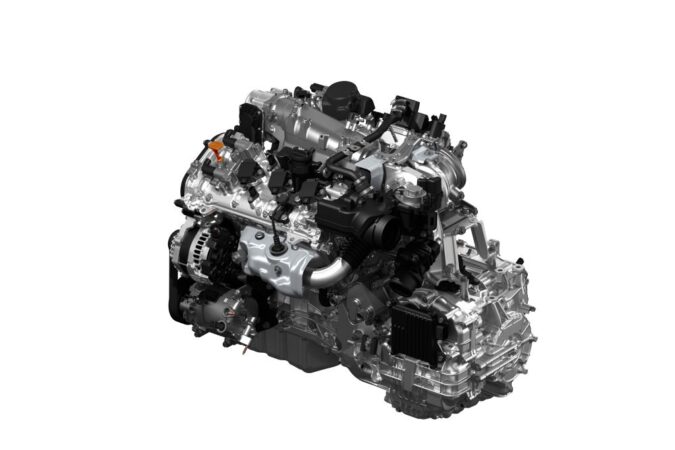The very first Acura MDX to roll off Honda’s production line graced the streets in 2001. Japanese brand Honda has established a reputation for producing reliable and sturdy performance vehicles. But, as with every other automaker, Honda has struggled with specific car designs. The brand struggled quite a bit with the Acura MDX in its early years. However, with time, they managed to bring some very necessary changes to improve the overall service of the cars. Before that, the automakers had to deal with numerous complaints from owners, especially about the Acura MDX transmission problems.
- Acura MDX Overview & History
- Common Transmission Problems
- Signs Of Transmission Failure
- Transmission Diagnostic Error Codes
- Transmission-Related Recalls
- Technical Service Bulletins (TSBs)
- General Reliability
- Repair & Replacement Costs
Car Transmission
Before we get into the depths of the Acura MDX transmission problems, it would be good if you knew what exactly a transmission is and what it does in your car. The transmission can also be called the car’s gearbox. It is tasked with transforming the power of the engine into something the vehicle can run on. Without the transmission, a car would not be able to move – as simple as that.
Manual Transmission
A manual transmission also called a manual gearbox is a type of multi-speed transmission used in vehicles equipped with internal combustion engines. In this kind of transmission, the driver has to use a gear stick to select gears.
Automatic Transmission
An automatic transmission can alter the gear ratio automatically when the vehicle is in motion; the driver does not have to worry about manually changing the gears. An automatic transmission can also include the gearless CVTs, which can vary gearing infinitely (theoretically).
Acura MDX
The first MDX was created to be a luxury option to Honda’s three-row crossover SUV – one of the first vehicles of that range to seat 7 passengers. Introduced in the fall of ’00, the Acura MDX also went by the name Honda MDX in some parts of the world. Apart from its spacious cabin, people loved the powerful five-speed transmission, V6 engine, and automatic four-wheel drive.
As time went on, the MDX provided improvement to the rear DVD entertainment system and cabin navigation, becoming a true pioneer of its kind.
When you take a look at the lineup’s history, you can see it has undergone several generational changes filled with considerable upgrades made at the request and suggestions of owners. These are some of the important features across the generations of Acura MDX.
First Generation (2001 To 2006):
- Five-speed automatic transmission
- 3.5L V6 engine offering 240 HP
- Automatic four-wheel drive system
- Auto climate control
- Heated seats
Second Generation (2007 To 2013):
- 0 to 60 mph in 6.5 seconds
- 3.7L V6 engine offering 300 HP
- Five-pound towing capacity
- Automatic AWD system coupled with an active rear differential
- Leather interior
- Xenon headlights
- Moonroof
- Entertainment, Sport, and Technology Package options available for model years 2007 to 2009
- Advance Package Option (From 2010)
Third Generation (2014 To Present):
- Nine-speed automatic transmission
- 3.5L V6 engine offering 290 HP
- Touchscreen information system
- LED Jewel-eye headlights
- Pre-collision braking and radar cruise control
- Hybrid 3.0L V6 engine option and 7-speed dual-clutch transmission option available
- A-Spec® Package option (From 2019)
Acura MDX Transmission Problems
The earlier models of the MDX became a big headache for the owners as the transmission was rather subpar. Some owners complained about slippage in gears, others about distinct vibration throughout the car when driven at specific speeds. Moving anywhere between 25 to 50 mph would make the car shudder tremendously within the column.
The sensation would halt if they took off their foot from the gas pedal and the issue would cease to exist for a while before returning. Some complaints painted a picture of the shuddering: imagine driving your car over rumble strips.
Other owners said that they heard a loud growling sound alongside the shuddering. In these times, the acceleration would be slow and weak. In some cases, shifting into fourth gear would help and the driver could move without issues. Others struggled with finding a remedy to the problems and brought their car to their local repair shop or dealership.
Honda and Acura vehemently denied the existence of such issues, refusing to help the buyers unless they were covered under warranty.
Bad Transmission Symptoms
Anyone who owns a car should know about the signs of transmission failure. Over the years, this component of the car has been a real challenge for the owners. Not limited to Acura MDX transmission problems, these are some of the symptoms of a failing transmission – both manual and automatic.
Acura MDX Transmission Problems, Symptoms #1: Clunking And Whining
The sounds made by the transmissions vary widely between various models and makes, but a good way to describe them would be a faint buzzing, humming, or whining sound. Owners noted that the sound intensified with time.
Manual transmissions emit slightly louder, almost “mechanical” sounds. If you hear a clunking sound when the gear is shifted, it is almost certainly a problem with the transmission. On the other hand, if the clunking sound is coming from under the car, it may be something with the differential or the constant velocity joints.
Acura MDX Transmission Problems, Symptoms #2: Lack Of Response
Is your car hesitating to go into gear? If yes, something is surely wrong with the vehicle. For automatic transmissions, there may be a delay with gear engaging when the vehicle is shifted into park or drive. This is generally a transmission-based error.
Manual transmissions do tend to display similar response timing issues, but after the gear into shifted, the RPM of the engine will surge. But at the same time, the car will not move as fast as it sounds like the engine is moving. This is normally due to a need for clutch replacement, but it could point to more serious issues.
Acura MDX Transmission Problems, Symptoms #3: Burning Smell
One of the reasons your car is giving off a burning smell could be overheating transmission fluid. The fluid helps to keep the parts greased and cooled so they do not damage or wear out easily. Once the fluid deteriorates, the system overheats and it results in increased corrosive activity and friction paired with additional debris and sludge buildup.
Not taken care of in time, this can eventually damage the transmission greatly. The final result is a pricey replacement. Using the incorrect type/brand of fluid or a low fluid level usually causes this problem.
Acura MDX Transmission Problems, Symptoms #4: Leaking Fluid
It goes without saying that if your vehicle is leaking oil, it should be your primary concern to have it checked and repaired. Automatic transmission fluid, otherwise known as ATF is what keeps the transmission stable with lubrication, conditioning, and cleaning. It works similarly to hydraulic fluid. With too little ATF, the engine tends to seize up before malfunctioning badly.
ATF has a bright red hue to it along with a somewhat sweet smell – if it works correctly. Spotted ATF in your driveway? You only have to fix the hole. If there is a burnt smell from it or it is dark, the fluid needs to be flushed or changed.
Acura MDX Transmission Problems, Symptoms #5: Grinding Gears
Manual transmissions give very clear signs of a problem with the transmission if a grinding feeling or noise is coming from the vehicle when shifted into gear. If this starts after the clutch is engaged and shifted, it is safe to assume that the clutch might need to be readjusted or replaced. Having said that, it can also point towards many other problems like worn-out or damaged gear synchronizers.
Automatic transmissions behave a bit differently. Rather than producing a grinding sound, it delays getting into gear instead of its general smooth transitions. If the problem worsens, the transmissions get shakier, and more jarring, and fixing that is another headache. Keep in mind that this problem may be caused by other damages inside the car so it is important to have it inspected and repaired as necessary.
Acura MDX Transmission Problems, Symptoms #6: Engine Noisy In Neutral
You don’t have to be alarmed the moment there is a bumping sound from the car unless it occurs when the vehicle is in neutral. Don’t fret though; you can easily repair this problem by changing the transmission fluid. If you continue hearing noises, however, get it checked at your local repair shop.
Acura MDX Transmission Problems, Symptoms #7: Check Engine Light Illuminated
The Check Engine Light (CEL) can be found on the car’s dashboard and is an important early indicator that your car is not doing well, especially when it comes to transmission. Although the light can go on for several reasons, don’t ignore the possibility of it being a transmission problem.
The car’s engine is littered with sensors that alert the vehicle’s computer when it picks up on the unusual activity. A transmission’s sensor can sense the slightest vibrations and jerks that many would not be able to feel immediately.
Acura MDX Transmission Problems, Symptoms #8: Gear Slippage
A transmission remains in a designated gear before the driver (manual) or computer (automatic) shifts it. When the transmission starts slipping spontaneously while driving, that is a major safety hazard. Gear slippage can be caused by broken or worn-out links. Has your vehicle been checked as soon as you can and perform the required repairs?
Acura MDX Transmission Problems, Symptoms #9: Dragging Clutch
This is a problem exclusive to manual transmissions. The clutch disk fails to disengage the flywheel even though the clutch pedal has been pressed. It is impossible to shift hears when the clutch continues spinning with the engine. A grinding noise accompanies this issue every time you try to shift gears.
Acura MDX Years To Avoid
According to CarComplaints.com, the 2003 Acura MDX was the worst model year from the lineup. The car was filled with problems, with one of the most prominent ones being the torque converter issues. 16 reports were filed on Car Complaints whereas the NHTSA reported 46 more. The model also suffered from a slew of electrical problems like malfunctions of the door locks, rear-view auto-dimming features, heated seats, and ignition woes.
The second-worst model would have to be the 2001 version. Yes, one of the “improved” models in the Acura MDX lineup was worse than the first of its kind. Being the first model built for this lineup, it is natural that there were some issues with it. This is the year that the Acura MDX transmission problems became the talk of the town.
9 complaints were registered on Car Complaints and 36 more to the NHTSA. Reports also mentioned misfiring cylinder issues. Although the wires, coils, and spark plugs were replaced, the misfiring problem persisted and showed no signs of solving.
In the end, Honda successfully solved the Acura MDX transmission problems by 2008. However, some minor issues did pop up in a few of the later-year models. Apart from the 2014 Acura MDX (which suffered from severe engine problems), all the other model years experienced fewer complaints.
It is impressive that the modern-day Acura MDX has managed to make a strong comeback.
Transmission OBD DTC Codes
- P0657: Voltage Issue in the ‘A’ Circuit. A transmission error is often caused by a bad or short ground on the PCM wiring harness or PCM.
- P0700: Malfunctioning transmission control system. The computer stores this code when there is an issue with the TCM, a solenoid, the valve body, or a wiring harness.
- P0715: Turbine/Input Speed Sensor Malfunction. This DTC generally gets stored if the input sensor fails to read the RPM of the engine, preventing the transmission from shifting gears correctly.
- P0717: Turbine/Input Speed Sensor No Signal. Your vehicle’s computer will generate this DTC when the PCM does not receive any signals from the input speed sensor. This stops the computer from determining the right time when the transmission has to be shifted.
- P0720: Failed Output Speed Sensor or Input Speed Sensor; a trouble code is caused generated due to a bad speed sensor (transmission).
- P0730: Wrong Gear Ratio. This trouble code can be generated by several issues, like contaminated transmission fluid, a malfunction in the TCM, or a poor transmission solenoid.
- P0766: Malfunctioning Shift Solenoid D. The vehicle’s computer stores this DTC if there is a fault with the valve body or shift solenoid.
- P0791: Intermediate Shaft Speed Sensor ‘A’ Circuit. If there is a fault with the intermediate shaft speed sensor, generally caused by wiring issues, a bad sensor, or a poor shift solenoid, the computer stores this trouble code.
- P0793: Intermediate Shaft Speed Sensor Circuit No Signal. When the computer cannot establish a connection with the intermediate shaft speed sensor, this DTC is stored.
- P2703: Friction Element D has failed. Failed friction elements such as a clutch disk, trigger this DTC.
Acura MDX Transmission Recall
When things took a really bad turn and customer complaints were too many to handle one by one, the Japanese automaker had to issue recalls. These are all the recalls the Acura MDX has gone through.
2014 MDX AWD – 13V571000 / JC8
Here’s one of the bigger recalls to date…
Brief
American Honda Motor Co., Inc. issued a recall for specific 2014 MDX AWD models manufactured between 6 May 2013 and 14 October 2013. The bolts that were attached to the drive shaft of the transmission (automatic) transfer assembly were not secured properly. Thus, the bolts would come loose and allow the shaft to separate.
Result
A detached drive shaft produces excessive noise and can damage the car, increasing the risk of accidents.
Solution
In December 2013, Honda started notifying the owners, and dealers were provided strict instructions to check and secure the driveshaft holding the bolts. This was to be done free of charge. Owners can reach out to the automakers at 1-800-999-1009 or visit their website: www.recalls.honda.com.
Make sure to refer to the company’s recall number which is JC8. You can also get in touch with the National Highway Traffic Safety Administration Vehicle Safety through their hotline number: 1-888-327-4236.
2003-2006 MDX – 12V573000 / S74
Here’s another recall made by Honda and Acura…
Brief
Certain 2003 to 2006 model year Acura MDX SUVs are being recalled by Honda. They were all manufactured from 26 November 2001, through 30 August 2006. According to their notice, the ignition switch’s interlock lever would deform, allowing the interlock function to stop working. This only applied to vehicles with automatic transmissions.
Result
If a driver removes the ignition key from the gear selector while the car has not been shifted into the ‘Park’ position, the vehicle will roll away. As a result, it posed significant risks to other vehicles, passengers, and pedestrians.
Solution
Starting in February 2013, Honda started alerting the owners. Dealers were instructed to install an upgraded shift interlock level. If necessary, they had to change the ignition switch for free. For this, the Acura recall number is S74.
2001-2002 MDX – 04V176000 / P31
Here was the first major recall for the MDX…
Brief
The reason behind the recall was that in specific operating conditions, heat would build up within the secondary shaft and countershaft second gears in an automatic transmission, ultimately causing gear breakage or gear tooth chipping.
Result
Gear failure can be accounted for by transmission lockup, one of the primary causes of crashes in Acura MDX.
Solution
After the recall was announced, actions were started on April 21, 2004. Honda announced an elaborate repair procedure for affected vehicles. On cars with a mileage of 15,000 miles and under, the dealer had to update the transmission. This included a basic revisit to the oil cooler return line which would increase greasing to the second gear.
On vehicles with over 15,000 miles, dealers had to check the transmission to locate gears that were already damaged. They would discolor due to overheating. If the discoloration remained, the transmission had to be changed. And if there was no discoloration at all, the dealer would still have to revise.
Owners can contact the brand at 1-800-382-2238, mentioning the recall number P31.
Acura MDX Transmission Problems: Technical Service Bulletins (TSB)
Meanwhile, here are some technical service bulletins concerning the MDX and its transmission…
2003-2004 MDX – TSB 06-003
Some details about TSB 06-003…
Issue
If the Acura MDX vibrates or shudders between 35-40 mph, chances are, the torque converter has failed.
Remedy
Change the broken component. You may have to replace the transmission as well, along with updating the HDS and PCM. Keep in mind that the PCM software needs to be updated to finish the repair job.
2007-2009 MDX – TSB 12-029
Some details about TSB 12-029…
Issue
A vibration from the torque convertor lock-up clutch can be experienced while driving the vehicle – between 20 to 45 mph. To reduce the chances of the shuddering to happen, a transmission software update is available.
Remedy
This software update can be availed for free for all affected vehicles – doesn’t matter the age or mileage of it. But, if the judder persists after the car has received a transmission software update, the torque converted may have to be replaced. American Honda extended the warranty on these parts in affected vehicles. It is now 105,000 miles or eight years from the original date of purchase, whichever comes first.
If you have any queries about the extension issued by Acura, make sure to call their Client Relations at 1-800-382-2238, and choose option 4. For owners residing in the US, you can locate a dealer at myAcura.com as well as contact your local distributor/dealer.
Acura MDX Reliability
On the repairpal.com website, Honda’s Acura MDX has received a 4.0 out of 5.0 on the reliability scale, which earns it the 2nd rank out of 14 luxury midsize SUVs. On average, the yearly repair cost ranges around $570, which means the ownership costs are quite average.
The severity of repairs is at a nice low percentage while their frequency is average. Notably, major problems for the MDX are uncommon. The average maintenance and repair costs of an Acura MDX are much lower than those of similar luxury midsize SUVs ($807) and all vehicle models ($652).
Transmission Repair & Replacement Cost
The average price of a remanufactured transmission is between $1,300 to $3,400, based on the model and make of your vehicle. Labor costs will be added later on and typically runs between $400-$800.
In contrast, the price of a new Acura MDX transmission can be more than $3,500, depending on the vehicle. But, with the need for transmission services like a transmission fluid flush or fluid change, the expenses change. Those are rather cheaper; and in some cases, less than $150.
Facts: Which Year Models of Used Acura MDX to Avoid?
- The Acura MDX has been in production since 2000 and is known for its luxury and utility.
- The 2001, 2002, 2003, 2004, 2005, 2010, 2014, 2016, and 2017 Acura MDX year models are best avoided due to transmission or engine issues.
- Transmission failure is the biggest issue with the Acura MDX, especially for the 2004 year model, which has earlier and more expensive failures.
- The 2010 model has an excessive oil consumption problem, while the 2014 and 2016 have many engine issues early on.
- The 2014 model has the highest number of complaints, while the 2017 model may have trouble early on.
- The following Acura MDX year models are safe to purchase: 2006-2009, 2011-2013, 2015, and 2018-2020, with minimal complaints or minor issues.
- Common Acura MDX problems include acceleration issues, excessive oil consumption, malfunctioning climate systems, and stalling or lurching.
- The most common problems reported by owners are transmission failure, excessive oil consumption, and strange engine noises.
Acura MDX Transmission Problems: In Conclusion…
No doubt the Acura MDX transmission problems were more than enough to ruin the reputation of the lineup for good and quite possibly, force it out of production. However, after multiple changes and recalls, Honda has reestablished reliability for these vehicles. While there was an abundance of Acura MDX transmission problems in the past, things thankfully got better in the end.





Greetings. In the Original owner of our 2014 MDX with 135k miles. I’m highly committed to routine maintenance. Around 80k miles the tach started mildly surging at highway speeds. It was diagnosed by Acura as an issue with the “judder” and was remedied by servicing the trans (complete drain) and resetting the computer (based on the service bulletin from Acura). It was fine for 30k but started surging again. They flushed the trans and that fixed it for 10k miles. At 125k something new started only on Highway traveling. At above 40mpg as I accelerate or drive up a hill, the teams will downshift for extra power and delay to shift up to 9th gear (engine revving Around 4k) usually as I stop accelerating. It will finally shift up and then then back down and then up again with a jerking sensation. No unusual noises or grinding. Possible ideas? Local garage recommendation? — thanks, Joe
Dear Joe,
Thank you for reaching out with detailed information regarding the issues you’re experiencing with your 2014 Acura MDX. I understand how frustrating these recurring problems can be, especially when you’ve been diligent with routine maintenance.
Based on your description, it seems like the issue might be related to your vehicle’s transmission control module (TCM) or its torque converter. The TCM controls the gear shifting in your vehicle, and if it starts malfunctioning, it could cause erratic shifts or delayed shifts. On the other hand, if the torque converter is having issues, it could also cause symptoms similar to what you’re experiencing, such as the vehicle struggling to shift up.
Before going further, I highly recommend checking the transmission fluid levels and its condition. If the fluid is low or dirty, it can cause shifting problems. Since the problem improved when the transmission was flushed in the past, it could be that the fluid quality or level is impacting performance again.
In terms of local garages, I’d recommend reaching out to “J & B Auto Service” located at 1031 W Kearney St, Springfield, MO 65803. They have good reviews and specialize in various types of repairs, including transmission issues. Another reputable place is “Springfield Transmission Service” at 1323 W Sunshine St, Springfield, MO 65807. They specialize in transmission repair and might be better suited to diagnose and address your MDX’s transmission problem.
Remember, it’s always wise to get a second opinion if you’re unsure about a diagnosis. If the issue continues after checking these possible causes, you might need to consult with a specialist or consider visiting an Acura dealership to diagnose the problem using their specialized tools and knowledge.
Please let me know if there’s anything else I can help with. I’m here to assist you!